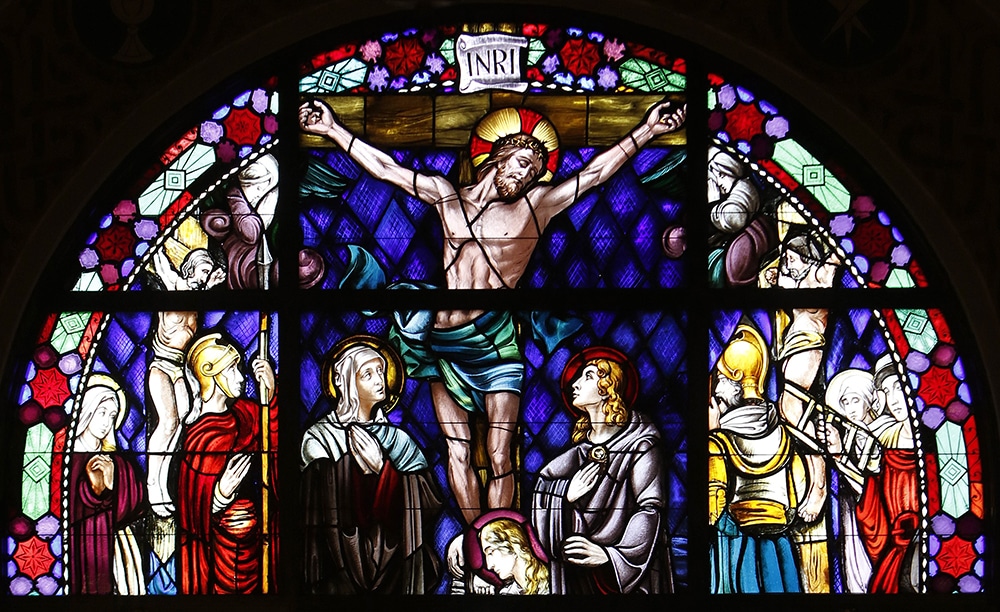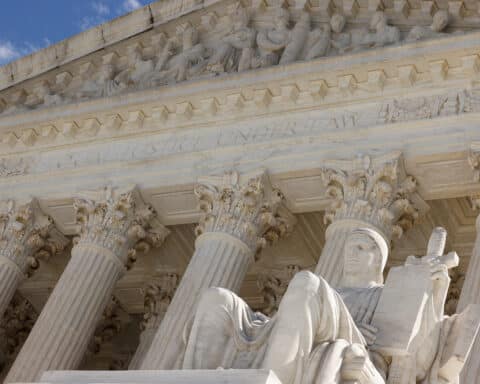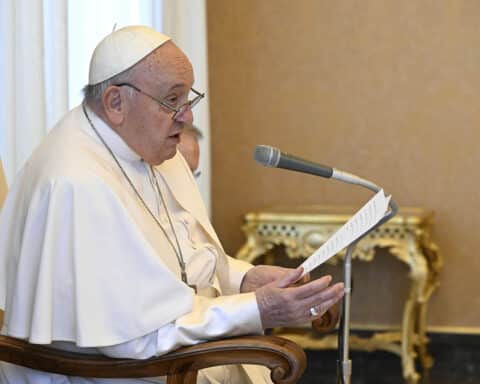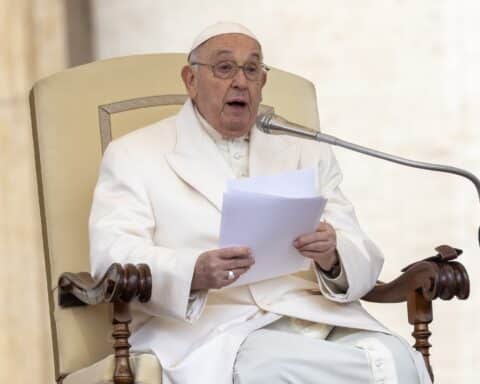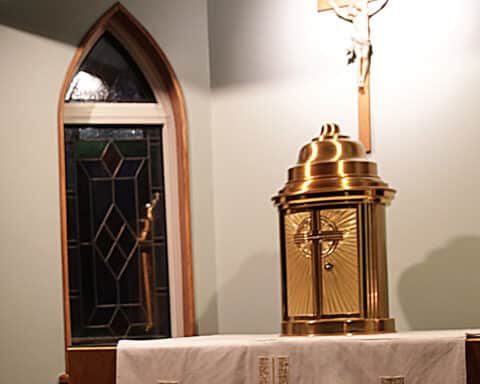Each Holy Week, we read aloud the passion of Christ. And each time the story of Christ’s suffering and death rings in our ears, we have another opportunity to find ourselves among his disciples. We, too, have betrayed him, like Judas. At times, we, too, have hidden our love for him, denying him like Peter. We have wept in dismay like the women of Jerusalem who meet him on the Via Crucis, the Way of the Cross. We have run off, leaving him, like the disciples, scattered and hiding in their fear.
The passion of Jesus is not only the historical account of the Lord’s once-and-for-all sacrifice; it is also the story of discipleship. By reading once more the Passion, we face head-on the temptation to deny Jesus, to renounce rather than embrace the Father’s plan of love. The temptations of the disciples belong not only to the past. These temptations threaten the disciples of Jesus today.
Will we follow the Father’s plan of sacrifice? Will we deny ourselves and embrace the heights of Gospel living? Or will we collapse today under the world’s pressure to adopt distorted visions of love? Disordered thinking threatens the Christian understanding of our creation by God as male and female. Others claim that we must liberate sexual expressions of love from the confines of a married man and woman. Voices clamor about us, creating tumult and babel even inside the Church.
Yet there are witnesses who remain clear and steadfast, unyielding to the provocation and allure of the world. There are disciples who did not run from the cross but embraced it, who joined their own wounded hearts to Christ’s suffering heart.
There was Simon of Cyrene, who carried his cross. There were the Blessed Virgin Mary, John and Mary Magdalene, who stood at the foot of the cross. There was the centurion who declared his divinity. Joseph of Arimathea and Nicodemus laid his tortured body in the tomb. Women from Galilee, followers of Jesus, witnessed his body being laid in the tomb.
It is much easier to focus on those disciples who leave. To lament Peter’s denial or to condemn Judas’s treachery. How often we recall that Jesus was abandoned by most of his closest friends in the midst of his suffering! And yet the hope of Easter offers the grace to celebrate those who remained with him, going even that hallowed morning to visit him in his tomb, only to discover his resurrection. These witnesses from Scripture provide a model for Christian discipleship today — for discerning the will of God and living it unflinchingly and unapologetically.
In the United States, our bishops clearly, boldly, clarified the limits of medical intervention for those who declare themselves “transgender.” The body, our bishops reminded us, is a constitutive part of our integral self. We are not merely body or soul. The sexual differentiation of our body is an indispensable, unalterable part of our identity.
Our bishops’ robust defense of Christian anthropology must be commended. It is a public witness that announces nothing less than total loyalty and devotion to the crucified Jesus. Fearing scorn and rejection, like the disciples who stayed with Jesus undoubtedly faced two millennia ago, the faithful expression of Catholic teaching echoes the embrace of the suffering Christ.
Responding to the confusion sown in part by Der Synodale Weg (the German Synodal Path), eight bishops from Nordic countries — including Denmark, Sweden, Norway, Finland and Iceland — spoke up. Having composed a letter reiterating the foundational principles of Christian anthropology, they instructed that letter to be read from the pulpits of their churches. Denouncing the German synod’s approval of same-sex marriages and embrace of transgender ideology, these bishops, too, showed themselves apostles who refused to abandon Christ at the critical moment. They, too, watched and remained with him.
The end of the story of faithful discipleship is not rejection, however. The end of Christ’s passion is not the burial of his tortured frame in the hallowed tomb. Jesus’ story ends not with death but with resurrection! The disciples find in Christ’s sacred Pasch not only suffering but hope!
The disciples did not remain with Jesus because they were masochists. Bishops do not seek this kind of confrontation with the world for their own delectation. But our suffering can be borne with confidence in Christ. The disciples had Jesus’ word to encourage them to trust in the Father’s plan. We now have the benefit of having the testimony of the Resurrection.
Christian life is not for suffering and pain. Those who remain faithful to Jesus will undoubtedly suffer. That is what the example of his passion shows. But that suffering will give way to glory: That is what the Resurrection shows.
The witness of our bishops is an especially powerful expression of this confidence in Christ’s power and life. But this witness is asked of every disciple. We face the temptation to run from the cross, to betray and deny Jesus. Or we can embrace that same cross, and, emboldened by the strength of our trust in him, we can remain with him, knowing that he will change darkness to light, even death to life.
Our Sunday Visitor Editorial Board: Father Patrick Briscoe, Gretchen R. Crowe, Scott P. Richert, Scott Warden, York Young

